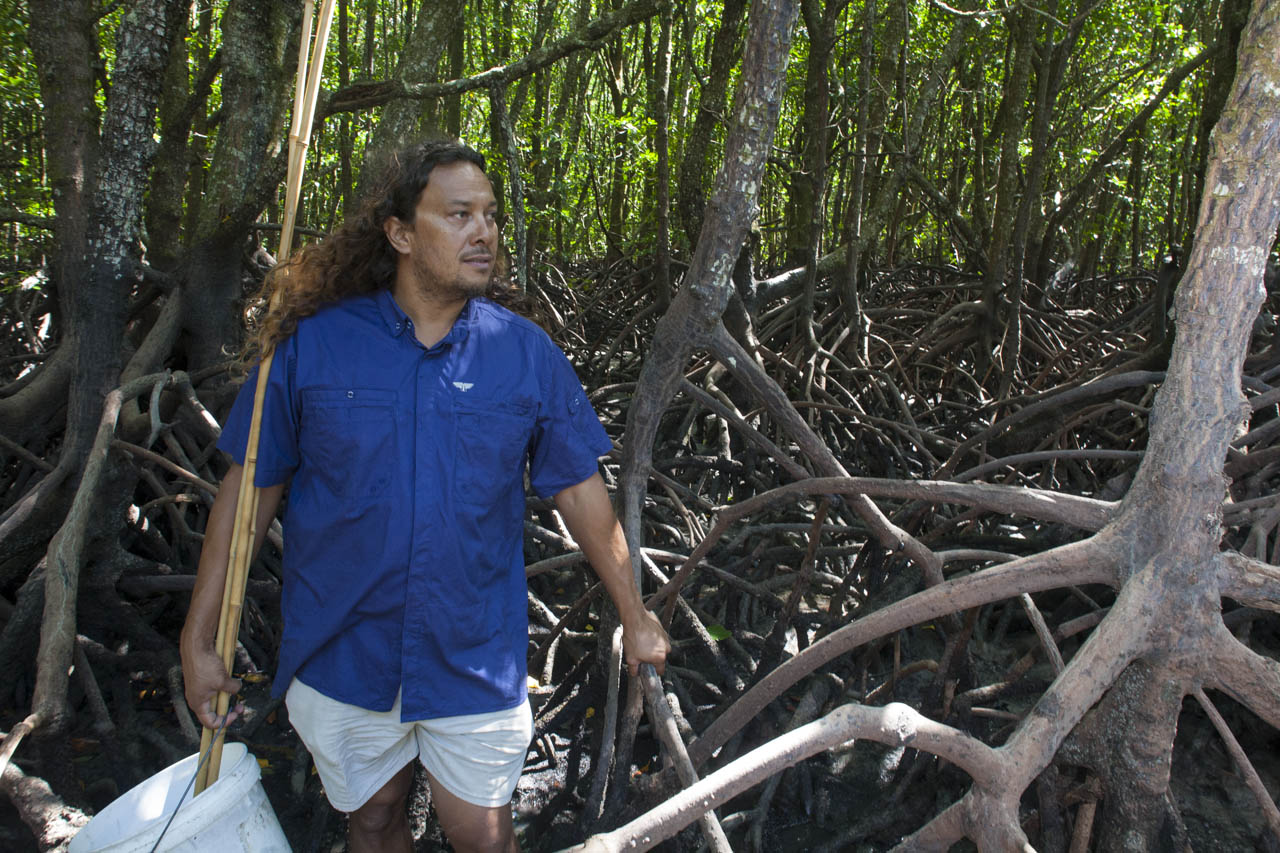
A Mangrove Stroll in the Daintree with Linc Walker
The emerald-green mangroves that fringe Cooya Beach have always protected the land on which Linc Walker's family have lived forever.
Beyond the beach is a vast shallow sea, pot-holed with the lairs of sting rays. In the distance, a lone Aboriginal fisherman walks, as if on water, grasping a long bamboo spear. "This place has fed my family for generations" Linc says.
Mangroves aren't on everyone's wish list of places to visit but then, how many people have ever even considered the possibility? From the outside, they appear dark and dirty. They are infiltrated by crabs and strange creatures like mudskippers, a type of land-living fish. Like a spooky enchanted forest, unfamiliar noises jump out at you from everywhere. With the receding tide, cavities in the subterranean maze of roots and burrows squelch and pop. It's like you can hear the forest breathing.
The reality is, there is a tranquility in mangroves, a steadfastness that has survived countless cyclones and storm-surges. These are places that shelter, feed and nourish us in so many ways.
Linc takes us for a walk barefoot across hard rippled sand. The soles of our feet are stretched apart and massaged by the solid ridges. "You'll sleep well tonight", says Linc. Nearing the mangroves, the sand changes, becomes softer and more forgiving until finally we step from the searing brightness of the midday sun, into the mangrove's cool shade.
CONTACT US ABOUT TRIPS TO THE DAINTREE
Our indoor lifestyles are so focused on TVs and iPads, we've become addicted to sight and sound alone. We rarely get to explore more evocative senses, like touch, smell or taste. The sensation of walking on hard sand may be alien but it's hardly unpleasant ... inside the mangrove, we find the ultimate patch of cool silt where our feet sink deep and the mud presses up between our toes. Magic!
The texture of the mud tells Linc what to look for, what animals live here and how to find them. He stops by a mangrove root, prods forward with his leg, then reaches into the mud with one hand and pulls a handful of shellfish from the mud. "You really can't become connected to a place unless you're out there, interacting properly with it" Linc says. There is no stronger connection than the sensation of having to 'blindly' feel your way through a place on which your survival depends.
As we head back out onto the tide flats, we're reminded, through this newfound appreciation of Linc's home, that everything from the ocean, to the mountains behind are part of our world. We all share Linc's cultural responsibility to maintain our own connection to country and care for it for generations to come.

